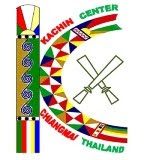Three articles look at China’s influence in South-East Asia: first; resentment in Myanmar; second, Cambodian rivalries; third, Banyan on the strategic implications
Jun 9th 2011 | MYITKYINA, KACHIN STATE | from the print edition

Across the river, the corrugated-iron roofs of a prefabricated barracks glint in the midday sun. They house hundreds of Chinese labourers working on the Myitsone hydropower project. This, according to Myanmar’s government, will be the sixth highest dam in the world, and generate 6,000MW of electricity a year. On completion in 2019, the dam will flood the gold-prospecting area and displace more than 10,000 people. All the electricity will be exported to China. All the revenue will go to Myanmar’s government. If an environmental and social impact study was conducted at all, it did not involve consulting the affected villagers.
A local Catholic priest who led prayers against the dam says his parishioners were moved to a “model” village, into tiny houses on plots too small for cultivation. The letters of concern he sent to Myanmar’s leaders went unanswered. He says he will stay in his historic church “till the waters rise over the doorstep”.
Those displaced are not the only ones worrying about the project. The project abuts territory controlled by the Kachin Independence Organisation (KIO), one of a plethora of ethnic insurgencies that have battled the central government for decades. Last year several bombs exploded at the dam site and in May the KIO warned that if the dam were not stopped it would lead to civil war. The KIO’s armed wing recently engaged in skirmishes with government forces, despite a notional ceasefire.
The KIO was banned from last year’s election in Myanmar because it refused to let its fighters join the government’s “border security force”. Its threat came as Myanmar’s newly installed “civilian” president, Thein Sein, a former general, embarked on a state visit to China.
China has a big stake in Myanmar. It is the country’s leading foreign investor. Myitsone is one of many hydropower, mining and infrastructure projects there. China’s most ambitious undertaking is a new deep-sea port for oil tankers. Due for completion in 2013, it will take gas from Myanmar’s offshore Shwe field and will have the capacity to satisfy 10% of China’s oil-import needs.
These close ties are not entirely comfortable for either side. Between 1m and 2m Chinese citizens have moved into northern Myanmar. They dominate the jade-and-gem trade, push up land prices and flaunt their wealth in Mandalay and Myitkyina, where all the posh cars have Chinese number plates. Local resentment is growing. Church leaders in Myitkyina say Chinese people make up more than half the population. Many Burmese say their northern states are like a Chinese province.
China, for its part, worries about the security of its investments and people. In the past it has leaned on Myanmar’s leaders to prevent fighting between the army and the ethnic insurgencies. When conflict broke out in 2009 with the Kokang, an ethnic-Han-Chinese minority, 37,000 people fled to China, provoking sharp criticism of the Burmese junta.
As its economic interests have grown, China has pressed for more access to Myanmar’s harbours and territorial waters, to monitor the security of the new port and pipelines, and to keep an eye out for pirates. But this is a neuralgic issue for a country with a deep-seated suspicion of its powerful northern neighbour.
Myanmar’s xenophobic leaders are trying to reduce their dependence on China by playing it off against India and the West. But India has been slow in trying to gain a toehold, while America and the European Union have recently extended sanctions on Myanmar. These include America’s embargo on backing loans from the World Bank, which would impose higher environmental and other standards on big infrastructure projects such as Myitsone.
So the regime is being drawn into China’s orbit as much from necessity as choice. That does not make China any more popular. In the words of an old Burmese monk: “We are China’s kitchen. They take what they like and leave us with the rubbish.”
Source : http://www.economist.com/node/18806782






No comments:
Post a Comment